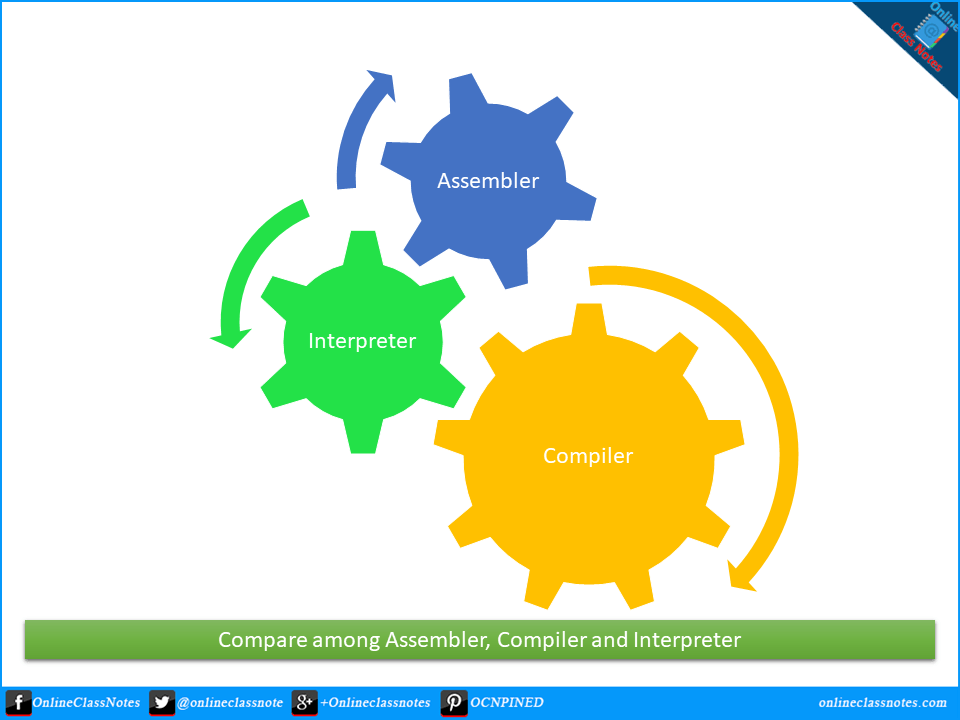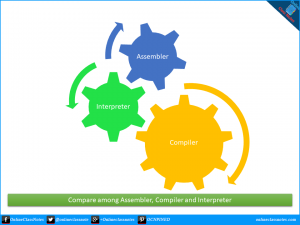Assembler, compiler and interpreter are translator software but they are different mostly on how they translate.
|
#
|
Subject to Differentiate
|
Assembler
|
Compiler
|
Interpreter
|
|
1
|
Number of lines
|
Assembler converts each line of assembler code into online of machine code
|
Compiler converts all the lines of source code at a time
|
Interpreter converts one line of source code at a time
|
|
2
|
In case of mistake
|
Compiler shows an error message highlighting the line number if there is any mistake in the source code
|
If there is any mistake in any line, interpreter stops converting before that line
|
|
|
3
|
Difficulty to find mistakes
|
It is hard to find mistake in assembler
|
It is hard to find mistake in compiler
|
It is easy to find the mistake in interpreter
|
|
4
|
Execution Time
|
Compiler takes shorter time to execute
|
Interpreter takes longer time to execute
|
|
|
5
|
Executable file
|
Once compiled, the executable file can run by itself
|
Interpreted code can’t run itself
|
|
|
6
|
Places to run/use
|
Compiled code made in a system can run in any system
|
Interpreted code will need the system specific interpreter along with the source code to run
|
|
|
7
|
Example
|
Compiled languages include C++, Pascal etc.
|
Interpreted languages include LISP, BASIC etc.
|

